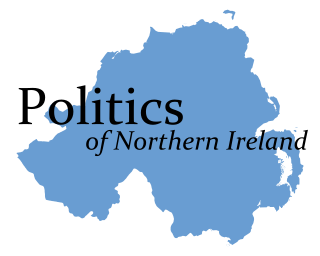The Courts of England and Wales, supported administratively by Her Majesty's Courts and Tribunals Service, are the civil and criminal courts responsible for the administration of justice in England and Wales.

A justice of the peace (JP) is a judicial officer of a lower or puisne court, elected or appointed by means of a commission to keep the peace. In past centuries the term commissioner of the peace was often used with the same meaning. Depending on the jurisdiction, such justices dispense summary justice or merely deal with local administrative applications in common law jurisdictions. Justices of the peace are appointed or elected from the citizens of the jurisdiction in which they serve, and are usually not required to have any formal legal education in order to qualify for the office. Some jurisdictions have varying forms of training for JPs.

The term magistrate is used in a variety of systems of governments and laws to refer to a civilian officer who administers the law. In ancient Rome, a magistratus was one of the highest ranking government officers, and possessed both judicial and executive powers. In other parts of the world, such as China, a magistrate was responsible for administration over a particular geographic area. Today, in some jurisdictions, a magistrate is a judicial officer who hears cases in a lower court, and typically deals with more minor or preliminary matters. In other jurisdictions, magistrates may be volunteers without formal legal training who perform a judicial role with regard to minor matters.

District courts are a category of courts which exists in several nations. These include:

The Judiciary of the Hong Kong Special Administrative Region is the judicial branch of the Hong Kong Special Administrative Region. Under the Basic Law of Hong Kong, it exercises the judicial power of the Region and is independent of the executive and legislative branches of the Government. The courts in Hong Kong hear and adjudicate all prosecutions and civil disputes, including all public and private law matters.

The Supreme Court of the Australian Capital Territory is the highest court of the Australian Capital Territory. It has unlimited jurisdiction within the territory in civil matters and hears the most serious criminal matters.

The courts of Northern Ireland are the civil and criminal courts responsible for the administration of justice in Northern Ireland: they are constituted and governed by Northern Ireland law.

The judiciary of Gibraltar is a branch of the Government of Gibraltar that interprets and applies the law of Gibraltar, to ensure equal justice under law, and to provide a mechanism for dispute resolution. The legal system of Gibraltar is based on English law and is a mix of common law and statute. The hierarchical system of courts includes a magistrates' court, a supreme court and a non-resident appellate court.

The lowest courts in the Isle of Man are the summary courts, Coroner of Inquests, Licensing Court, Land Court, etc. These courts are presided over by magistrates. There are two stipendiary magistrates, the High Bailiff and the Deputy High Bailiff, along with lay justices of the peace.
The Magistrates Court of Western Australia is the first tier court in Western Australia, a state of Australia. It has jurisdiction in respect of criminal and civil matters, as well as a range of administrative matters. The court came into existence in May 2005 and was the result of the amalgamation of the Court of Petty Sessions of Western Australia, Small Claims Tribunal of Western Australia, and the Local Court of Western Australia.
The title of Coroners Court is the name given to proceedings in which a coroner holds an inquest or an inquiry in the Northern Territory.
The Youth Justice Court of the Northern Territory is an Australian court which hears and determines cases concerning crimes committed by children under the age of 18 years in the Northern Territory.
The Court of Summary Jurisdiction is a court in the Northern Territory of Australia. It has jurisdiction to deal with criminal offences which occur in the territory. It is one of the courts that is usually referred to as a magistrates court.
The Mental Health Review Tribunal is a specialist tribunal established in the Northern Territory, a territory of Australia which has jurisdiction to deal with mental health issues in the territory. It has exclusive jurisdiction in terms of most mental health issues, although it may share jurisdiction on some issue with other courts, such as the Supreme Court of the Northern Territory. The tribunal came into existence in 1998 and it is located on Level 3, 9–11 Cavenagh Street, Darwin.
The Supreme Court of the Northwest Territories is the name of two different superior courts for the Canadian territory of the Northwest Territories, which have existed at different times.

The Magistrates Court of the Australian Capital Territory is a court of summary jurisdiction that deals with the majority of criminal law matters and the majority of small civil law matters in the Australian Capital Territory, the Jervis Bay Territory and the Australian Antarctic Territory.

The Chief Industrial Magistrate's Court of New South Wales, a division of the Local Court of New South Wales, is a court within the Australian court hierarchy established pursuant to the Industrial Relations Act 1996 (NSW).

The courts of South Africa are the civil and criminal courts responsible for the administration of justice in South Africa. They apply the law of South Africa and are established under the Constitution of South Africa or under Acts of the Parliament of South Africa.

The Judiciary of Kenya is the system of courts that interprets and applies the law in Kenya. After the promulgation of the constitution of Kenya 2010 the general public through parliament sought to reform the judiciary. Parliament passed the Magistrates and Judges vetting act of 2011. A major part of reforming the judiciary was the vetting of Magistrates and Judges in an attempt to weed out unsuitable ones. The Judicature Act has also been amended to raise the minimum number of magistrate and Judges allowing more judicial officers to be hired. More magistrates and judges are needed to clear the backlog of cases that have caused great delay in the conclusion of cases and to staff new courts. New courts are needed to bring the courts closer to the people which is in line with devolution a major principle written into the Constitution of 2010. New courts like the High Court opened in Garissa in November 2014 is a good example. In the past residents of North Eastern Kenya had to go all the way to Embu to access a High Court.
















